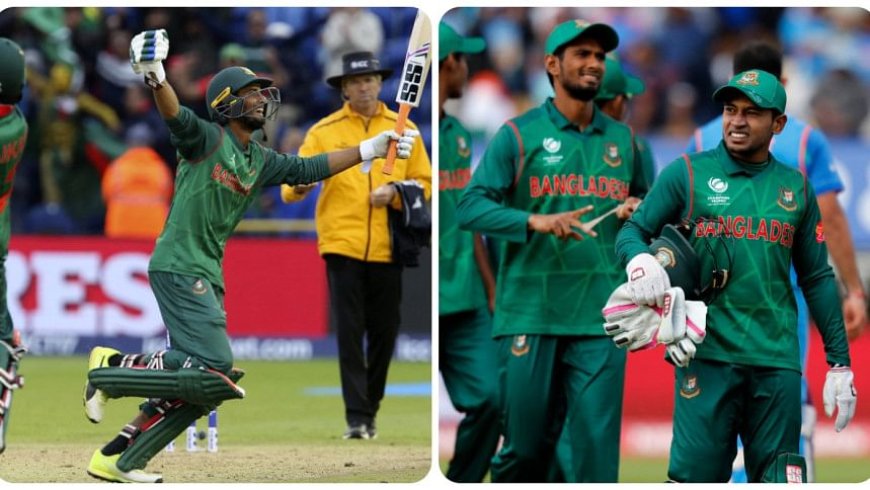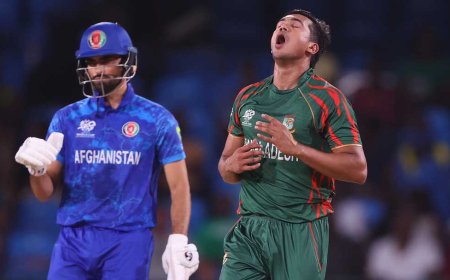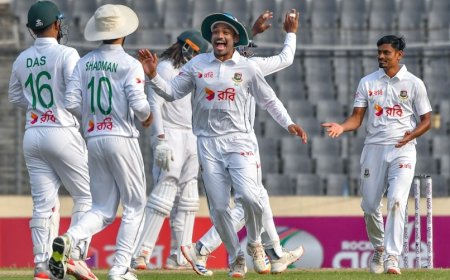"Bangladesh in Global Events: A Legacy of Underachievement"
Bangladesh's connection with the ICC Champions Trophy has been contradictory from the very beginning.

For example, the first edition of the tournament in 1998, when it was called the Wills International Cup, was held in Dhaka amid much fanfare, with Bangladesh praised for ensuring the event’s successful start. However, despite being the host, Bangladesh, as an associate nation at the time, was not eligible to compete since the tournament was exclusive to Test-playing nations. In the five editions they’ve participated in, the Tigers have won just two out of 12 matches, giving them a meager win percentage of 16.667 in the Champions Trophy—lower than their records in both the ICC ODI World Cup (32.65%) and the ICC T20 World Cup (26.667%).
Statistically, the Champions Trophy has been Bangladesh's least successful ICC tournament.
Yet, from another angle, the Champions Trophy could be seen as the most successful ICC tournament for Bangladesh. Their biggest achievement in a major men’s ICC event came during this competition. In 2017, although they were thrashed by hosts England in the group stage and narrowly saved by rain against Australia in a match they were losing, the Tigers managed a historic five-wicket victory over New Zealand in Cardiff. That win, thanks to a massive 224-run partnership between Shakib Al Hasan and Mahmudullah, secured their first-ever semifinal spot at a marquee ICC event.
Unfortunately, their journey ended with a heavy defeat to India, who won the semifinal by nine wickets.
The fact that Bangladesh achieved their best-ever performance in the tournament considered their weakest is paradoxical in itself. Moreover, their win over New Zealand was their first-ever victory in the main Champions Trophy competition, as their previous win, in the 2006 edition, came during the qualifying rounds.
Bangladesh’s other notable achievements in ICC events include a quarterfinal finish in the 2015 ODI World Cup and a Super Eight appearance in the 2021 T20 World Cup.
For a nation that has been a Test-playing country for over 25 years, has a rich cricketing history dating back to the 1800s, has hosted first-class matches and Test cricket even before independence, boasts a passionate fan base, and is led by a financially strong board, these meager results are simply unacceptable.
Over time, various excuses have been put forward to explain these underwhelming performances, ranging from inadequate infrastructure and poor domestic conditions to bad draws and even elaborate conspiracies.
However, when one sees a country like Afghanistan rapidly rising in white-ball cricket, these excuses start to seem hollow.
The difference in mentality between Bangladesh and Afghanistan became glaringly obvious during their virtual quarterfinal clash in last year’s T20 World Cup. To reach the semifinals, Bangladesh needed to chase down 116 in just 12.1 overs, but instead of striving for a historic win, the Tigers aimed for a meaningless victory. Meanwhile, Afghanistan, full of determination, clinched the win and secured a spot in the semifinals.
This mentality—choosing a face-saving option over seizing an opportunity for unprecedented success—perfectly encapsulates the state of Bangladesh cricket. Until this culture of mediocrity dissipates, it's hard to remain optimistic about Bangladesh's chances in major events. After observing as silent spectators in 1998, Bangladesh’s participation in the Champions Trophy began in 2000, but the journey has certainly not been without its challenges.
What's Your Reaction?





















































































